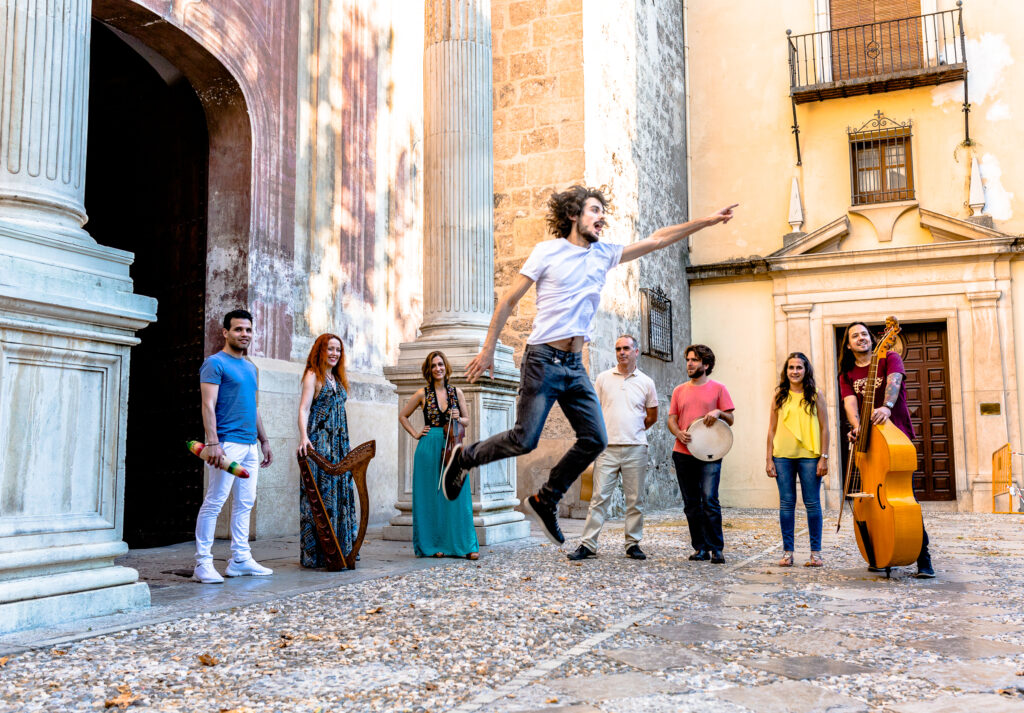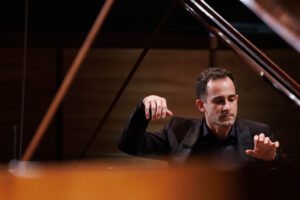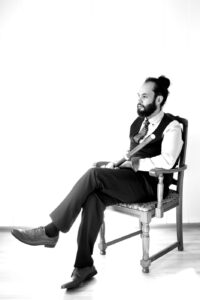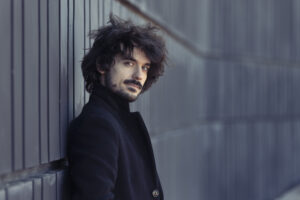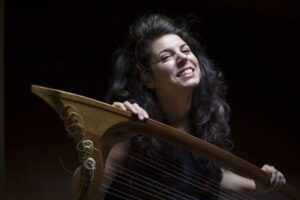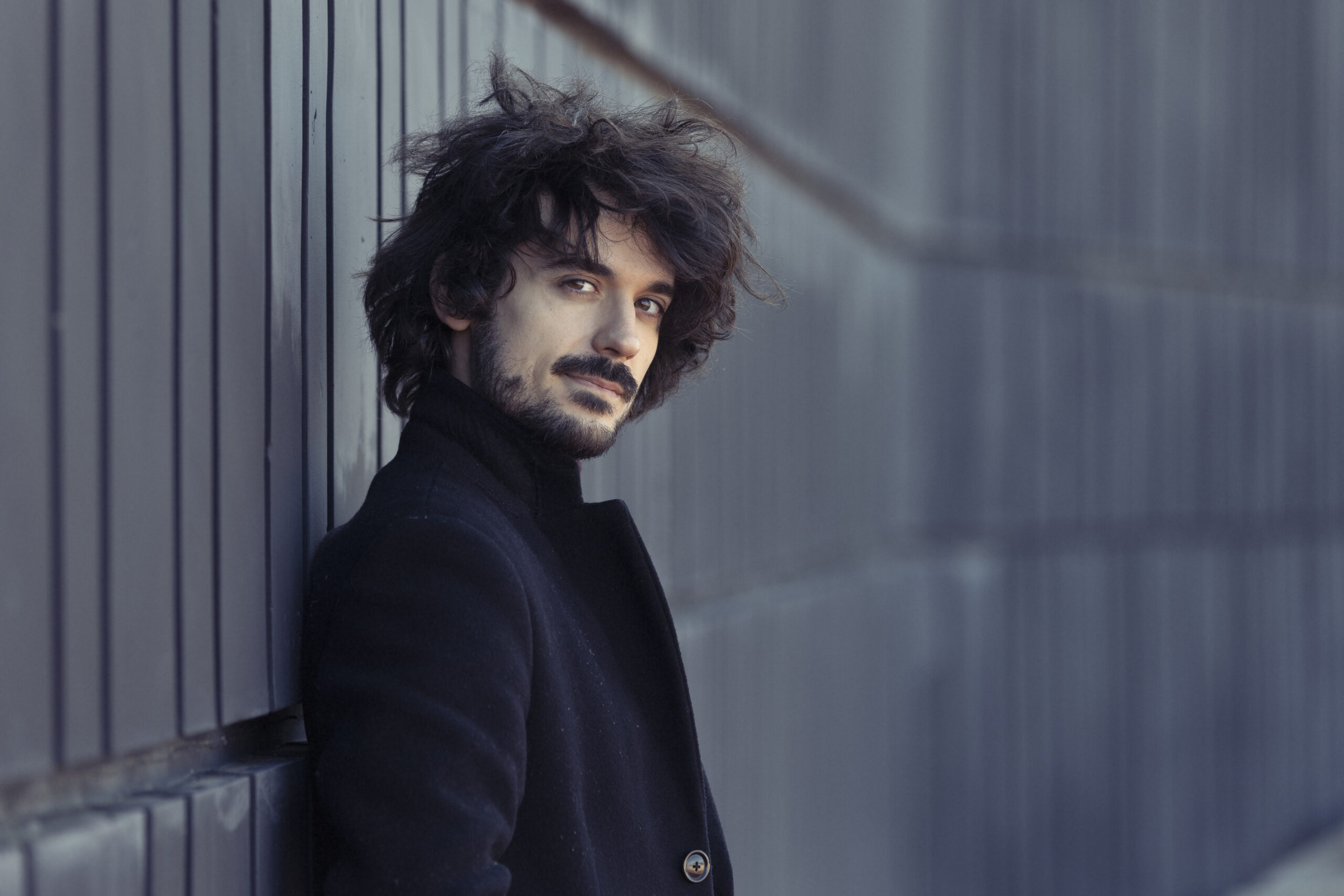
Today we talk with Darío Tamayo, director and harpsichord specialist. Íliber Ensemble is one of the ensembles where we can witness the performance of our protagonist today as a conductor and harpsichordist. Here is a link to his music for you to use as a soundtrack while reading
1- How did you start your career in early music, and what drew you to the harpsichord and orchestral direction in this context?
My fascination with early repertoire has been a constant throughout my life, closely tied to my relationship with music in general. My parents, avid music lovers, always had a special preference for baroque music, which they passed on to me from my early childhood. This circumstance created the ideal conditions for my later encounter with the harpsichord to be a kind of revelation. I first played this instrument at the age of fifteen when the Conservatory of Granada, my hometown, acquired a harpsichord. I remember that, putting my hands on the keyboard for the first time, I was captivated by the sound and personality of the instrument. From that moment, my interest in the harpsichord and its repertoire grew exponentially, becoming the core of my professional career and artistic life. On the other hand, my involvement with early music as a director would come years later, with the founding of Íliber Ensemble in 2013, and it has been deepening over the years as I lead various ensembles in performing these repertoires.
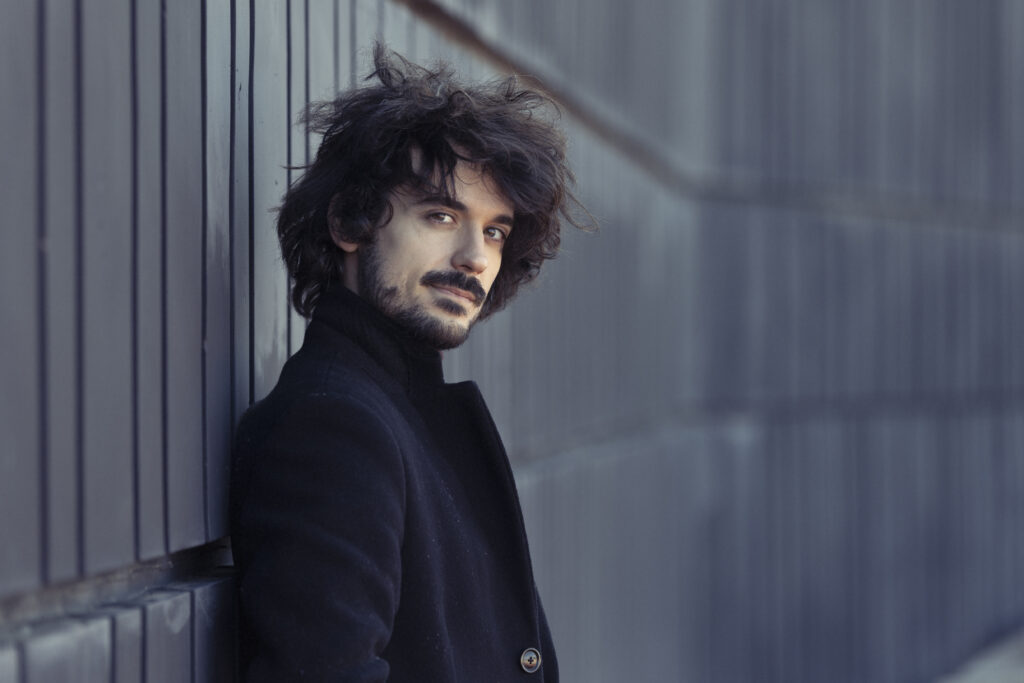
2- As a conductor and harpsichordist, how do you approach the interpretation of early music with period instruments?
The use of period instruments allows us to have a more natural and direct approach to the sonic context of bygone centuries. They provide resources in terms of timbre, temperament, pitch, articulation, and phrasing inherent to the aesthetic universe of the time. Additionally, the use of these instruments should be complemented by the application of theoretical elements and interpretative practices found in historical sources, from ornamentation to rhetoric, improvisation, and diminutions.
3- What do you consider the most significant challenges when leading an orchestra specialized in early music?
Leading such ensembles presents specific challenges due to their particularities, requiring a careful approach and a profound understanding of aesthetic and historical practices. Among these challenges, one of the most stimulating for me is the detailed work on blending and balancing different instrumental groups. The various combinations offer a vast palette of colors and timbral and expressive resources. In this regard, the wide range of possibilities provided by the basso continuo section, consisting of different instruments, is noteworthy. The selection of instruments depends on the historical-aesthetic context of the music being interpreted in each case.
4- Let’s talk about your most recent projects. Tell us a bit about Íliber Ensemble.
Íliber Ensemble is an early music ensemble founded in Granada with over a decade of history, featuring concerts both nationally and internationally, several stage productions, and two recorded works in the market. Its goals include the recovery of Spanish Baroque musical heritage and the promotion of works by lesser-known composers. Another driving force behind our group’s activity is research and the creation of programs that bring together different seemingly distant cultural traditions. All these elements constitute the starting point and raison d’être of our project since its foundation.
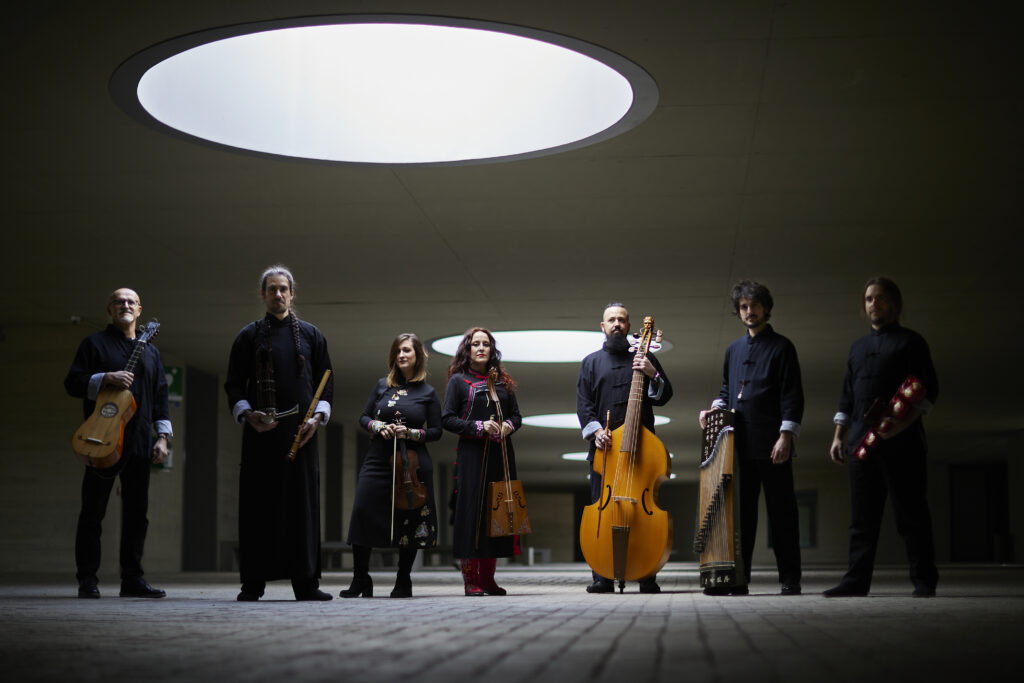
5- Let’s talk about repertoire selection. How do you choose the pieces you perform and direct?
The selection of repertoire is a creative process in itself, usually centered around a fundamental idea that gives rise to the genesis of the entire program. This germinal element can take various forms (a composer, a historical figure, an event, a place, a genre, a style, or a aesthetic period) and, once defined, serves to establish the main guidelines of the project. Additionally, for program construction, determining not only which pieces to perform but also their order is of great importance, as it decisively shapes the sonic narrative of the concert.
6- In your experience, how have you observed the evolution of interest in early music in the contemporary audience? Is there a way to make early music more accessible to younger generations?
Interest in early music has undeniably grown in recent decades, not only among the audience but also among various elements in our sector, from performers to specialized critics, educational institutions, music festivals, and record labels.
Regarding reaching younger generations, this would inevitably pass through education, as it is the only means capable of providing effective and lasting solutions to such complex issues. In this case, it would not only be a matter of increasing the presence of early music in basic musical education but also collaborating in its dissemination through the digital media available today, among other actions. However, it is a complicated issue that requires deep reflection and a multifaceted approach, avoiding superficial analyses and short-term visions that would lead to the implementation of cosmetic measures that won’t solve the problem.
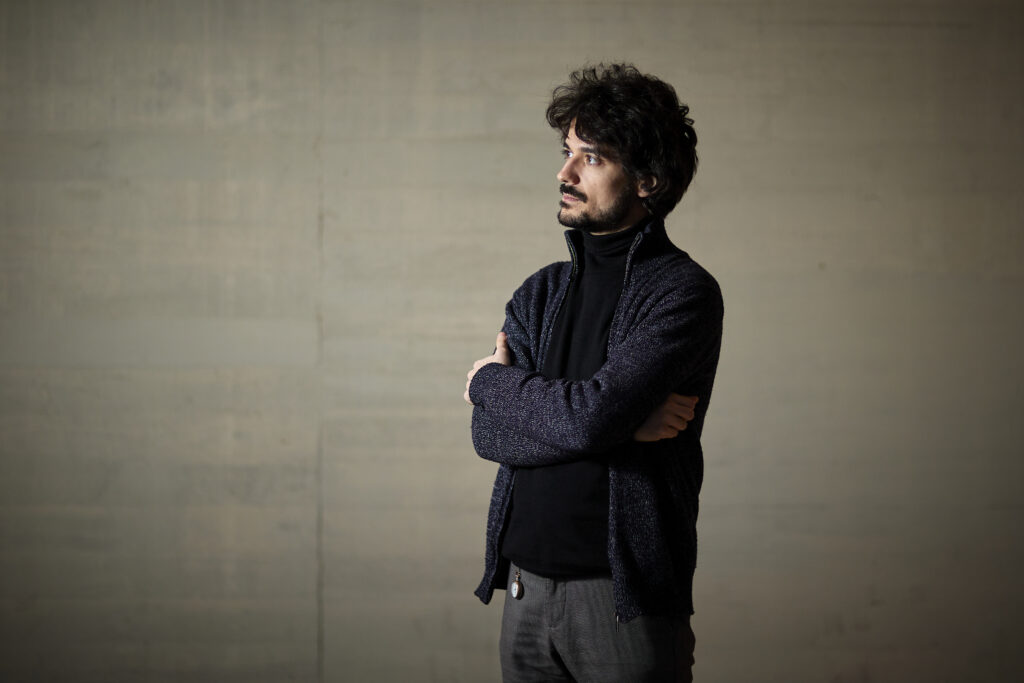
7- What is your opinion on the importance of historically informed performance, and how do you apply it in your work? Can Bach be played on the piano?
Historically informed performance is the result of applying theoretical and practical information gathered from sources of the time, including treatises, writings, instruments, or iconography, to the performative activity. Its importance is crucial as it allows us to get as close as possible to the aesthetic, stylistic, sonic, and conceptual context of each composer, helping us better understand the intentions and circumstances that led to the creation of each piece, keeping in mind that achieving the original sound is always a utopia.
As for the second question, absolutely! Bach can be played on the piano, just as it could be played with a saxophone quartet or a jazz combo, for example. In fact, there are truly wonderful interpretations of his music with instruments and performance criteria far removed from the practices of the time. In my opinion, the fundamental question here is to be aware that Bach never knew the modern piano, and therefore, he never composed thinking about the technical possibilities or the timbral and expressive resources of that instrument. At this point, I am convinced that Bach would have written differently for the piano as we know it today, fully exploiting the instrument’s capabilities and even pushing them to the limit, as he did in his production for harpsichord and organ.
8- As a musician specialized in early music, how do you manage the connection between historical authenticity and personal artistic expression in your performances?
For me, these are two elements that always go hand in hand. The application of historical criteria does not exclude or limit the expressiveness of a performance; on the contrary, it brings out a whole constellation of subtle and expressive details inherent to the work itself, reflecting the genuine intentions of the composer. On the other hand, the historical information we have leaves many parameters open, providing ample space for the performer to unleash their creativity and imagination.
9- Can you share a notable or amusing anecdote from your experiences as a conductor and harpsichordist in the field of early music?
Over the years, countless anecdotes of all kinds have arisen. I would say that in practically every concert, there is some surreal situation, either on or off the stage. I remember an anecdote that is now amusing to me but was
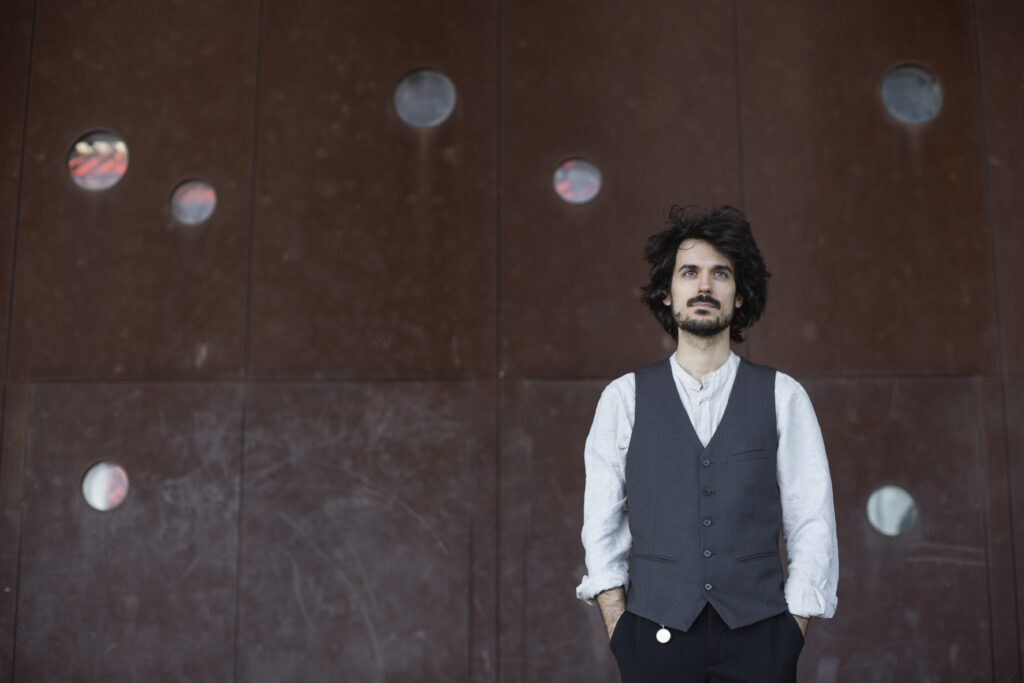
9- Can you share any notable or amusing anecdotes from your experiences as a conductor and harpsichordist in the field of early music?
Throughout all these years, numerous anecdotes of all kinds have emerged. I would say that in practically every concert, some surreal situation occurs, either on or off the stage. I remember an anecdote that is now amusing to me, but was quite distressing at the moment it happened. It was in 2018, during the closing concert of the tour with Íliber Ensemble and Todos los Tonos y Ayres, featuring the project “El clave del Emperador.” We were in Shanghai, at the Daning Theatre, and it was a significant concert because, besides being the finale of the tour, the theater was packed, and among the audience were various diplomatic authorities and business personalities. Well, in those circumstances, just a few minutes before going on stage, one of my contact lenses decided to get trapped on my upper eyelid, and there was no way to extract it. And, of course, I had left my glasses at the hotel. In the end, I had to perform the entire concert without being able to see anything with my right eye. Still, with maximum concentration, we managed to finish it, and the performance was a success. After the concert, in the dressing room, my colleagues helped me locate and extract the lens, and fortunately, it didn’t escalate further.
10- What do you believe are the most fascinating aspects of early music, and how do you motivate your continuous artistic development in this field?
One of the things that fascinate me the most about early music is that it is a repertoire whose conceptual genesis differs entirely from later music. As Harnoncourt stated in his “Discurso sonoro,” “music until 1800 speaks, and from 1800 onwards, it paints.” For me, this phrase precisely captures the absolutely radical paradigm shift that occurred with the arrival of Romanticism. Early music is pure eloquence, rhetoric, symbolism, and prosody, consisting of “words” that we must articulate and pronounce appropriately. Being able to understand this idiosyncrasy and reflect it in our interpretation is truly exciting.
As for my artistic development as a performer in the field of early music, it relies on two fundamental pillars: constant technical refinement as an instrumentalist and director, and ongoing research to discover new repertoires and delve deeper into the theoretical and practical issues gathered from historical sources.
11- As a conductor, how do you manage collaboration with other musicians and soloists in early music projects?
The soloists I work with as a conductor are usually performers I trust both personally and artistically. Generally, they are musicians I have had the opportunity to collaborate with in previous productions, sharing a similar or complementary vision of interpretation and a special musical bond.
12- What advice would you give to musicians considering delving into the interpretation of early music and the world of harpsichord and orchestral direction in this context?
First and foremost, I would strongly encourage them to do so, as it is a path that will lead them not only to discover incredible repertoires but also to rethink their own relationship with the instrument and the musical act itself.
Regarding advice, it is the same guidance I try to apply to myself as a musician. On the one hand, I believe it is crucial to dedicate oneself to training and the study of technique, as solid foundations upon which to build our interpretations and as fundamental drivers of our own careers. At the same time, I consider it of enormous importance to follow intellectual curiosity, never cease to nourish it, and always stimulate critical thinking, avoiding falling into self-destructive attitudes that serve absolutely no purpose. Finally, I would ask them to listen attentively to their intuition, as it often provides the best possible answer in moments of confusion, darkness, or uncertainty.
